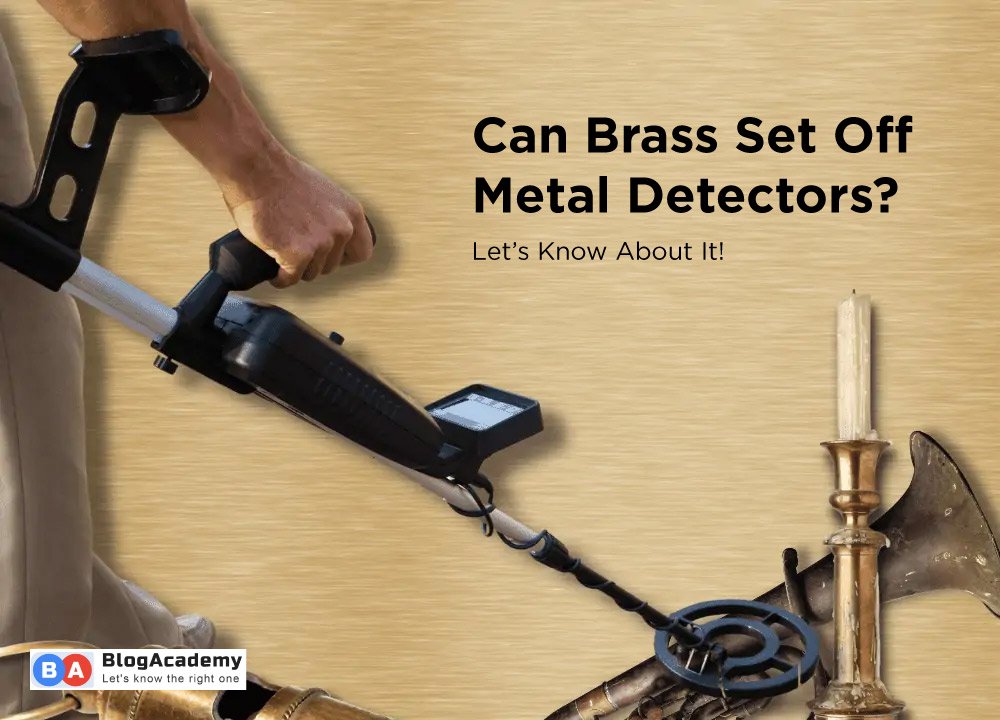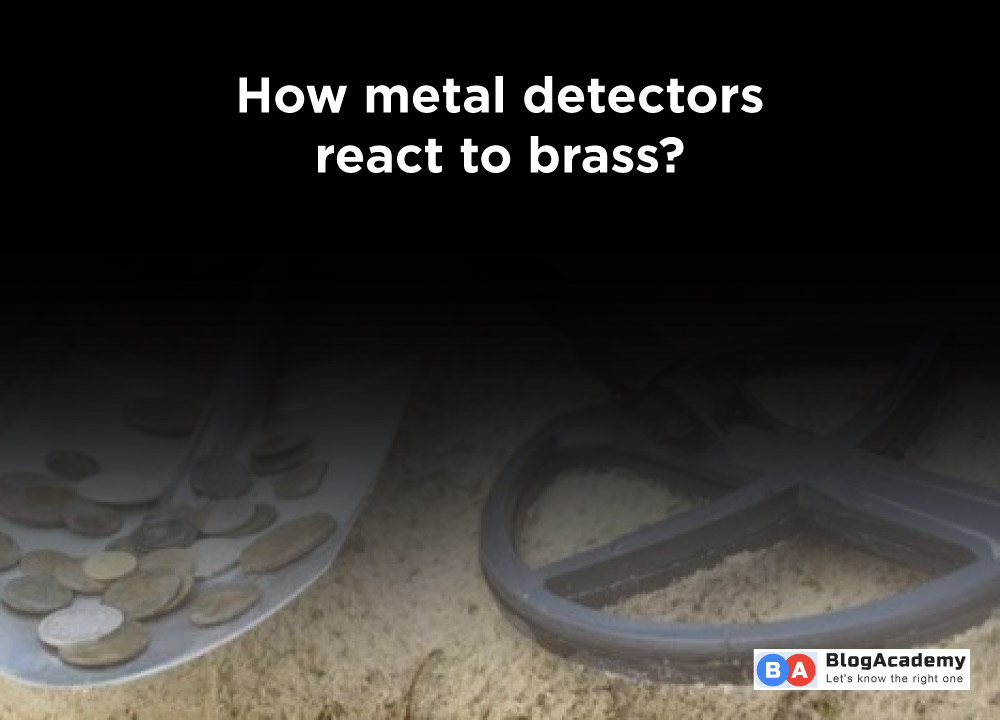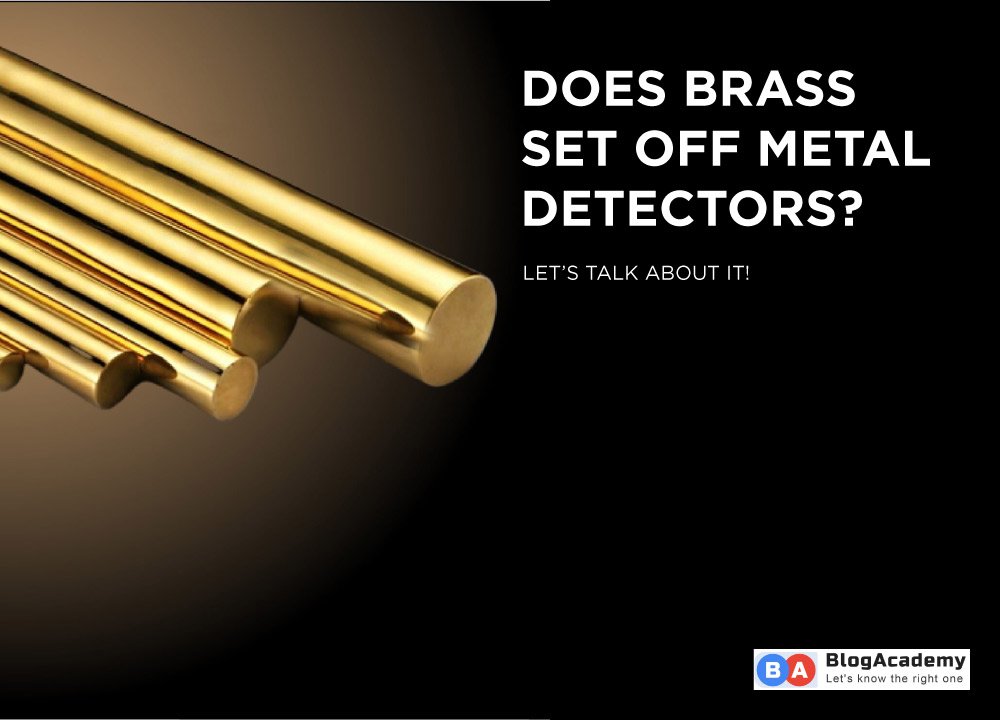Metal detectors are commonly used in various security settings to identify metal objects that may pose a threat. Does brass set off metal detectors, here we will clearly discuss it. These devices can detect a wide range of metals. Including brass, which is a popular alloy used in many everyday items such as jewelry, musical instruments, and household fixtures. If you are wondering whether brass sets off metal detectors, this blog post will provide you with all the information you need.
What is Brass?
Brass is a popular metallic alloy that consists of copper and zinc. It has a bright, yellowish appearance and is widely used in various applications, such as musical instruments, decorative items, plumbing fixtures, and more. The proportions of copper and zinc can vary, resulting in different types of brass with varying properties. For example, adding more zinc to the mix can result in brass that is more malleable and easy to shape, while increasing the copper content can make it harder and more durable. Brass is also known for its resistance to corrosion and relatively low melting point.
How Do Metal Detectors Work?

Metal detectors work by using electromagnetic fields to detect the presence of metal objects. The basic components of a metal detector are a control box, search coil, and shaft.
Metal detectors work by creating a magnetic field that interacts with metal objects. The device contains a coil of wire that produces a changing magnetic field when electricity is passed through it. When this magnetic field encounters a metallic object, it induces an electric current in the metal, which in turn produces a secondary magnetic field that can be detected by the metal detector.
The device then alerts the user with an audible signal or visual display. The size, shape, and composition of the metal object can affect the strength and nature of the signal detected by the metal detector.
Metal detectors are used for a variety of applications. Including security screening at airports, finding buried treasures or artifacts, and locating metal pipes or cables in construction and utility work.
Can Brass Set Off Metal Detectors?

The answer is yes, brass can set off metal detectors. This is because brass is a metal alloy that contains copper and zinc, which are both highly conductive metals. Metal detectors work by emitting electromagnetic fields that are disrupted by metal objects, causing the detector to emit a signal.
When a brass object passes through the detector, it will disrupt the electromagnetic field and trigger the detector to alert the operator. However, the amount of brass present in an object and the sensitivity of the metal detector can affect whether or not it will set off the detector.
How metal detectors react to brass

Metal detectors can detect brass, but the detection depends on the type of metal detector, the sensitivity settings, and the thickness of the brass. The conductivity of brass is less than that of aluminum and copper, but higher than that of steel. Therefore, the detection of brass by a metal detector is not as reliable as other metals such as steel, copper, or aluminum.
The type of metal detector used also plays a role in detecting brass. Different types of metal detectors use different techniques to detect metal objects. For example, very low-frequency metal detectors are more sensitive to brass than high-frequency metal detectors. Similarly, pulse induction metal detectors are more effective in detecting brass than other types of detectors.
How to Minimize the Risk of Brass-Triggering Metal Detectors?

If you are traveling with brass items or passing through a security checkpoint, there are several precautions you can take to minimize the risk of triggering metal detectors.
If you are carrying brass items that may trigger metal detectors. Such as keys or jewelry, there are a few steps you can take to minimize the risk of setting off the detector:
- Use plastic bags or containers: You can place your brass items in plastic bags or containers before going through the metal detector. This will help to reduce the sensitivity of the detector and may prevent it from going off.
- Remove brass items before going through the detector: If possible, remove any brass items you may be carrying before going through the detector. You can put them in a bag or container and retrieve them on the other side.
- Inform security personnel: If you know you will be carrying brass items, inform the security personnel before you go through the detector. They may ask you to remove the items or take other measures to avoid setting off the detector.
- Use a different route: If you know that a certain entrance or exit has a sensitive metal detector, try to use a different route that may have a less sensitive detector.
- Dress appropriately: Avoid wearing clothing with metal zippers or buttons, which may also trigger the metal detector.
Remember that metal detectors are in place for security reasons. And it is important to comply with the instructions of security personnel to ensure a safe and smooth screening process.
Conclusions
In conclusion, brass can set off metal detectors, but its detection depends on various factors. Such as the type of metal detector used its sensitivity settings and the thickness of the brass. Although brass is an electrically conductive metal. it is not as reliable as other metals such as copper, aluminum, or steel. Therefore, if you’re carrying brass objects, it’s best to be prepared to go through the metal detector and allow the security personnel to identify the object.


